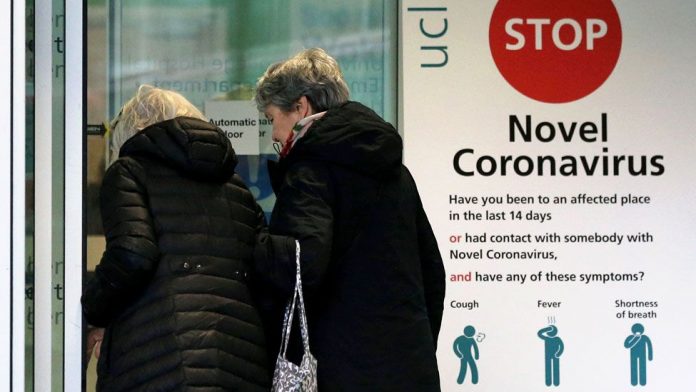The Government has published proposals for the emergency laws it believes it needs to steer Britain through the coronavirus outbreak.
The Emergency Coronavirus Bill – to be tabled in Parliament on Thursday – will give ministers the powers they say they need to respond to the threat of the virus and support the NHS.
They include allowing the Border Force to suspend operations at airports or transport hubs if there are insufficient resources to ensure security, and the greater use of video hearings in court cases.
Recently retired NHS and adult social staff will be enabled to return to work without any loss of pension rights.
People who volunteer to help care for patients in the health and social care sector will be given additional employment safeguards enabling them to “pause” their main jobs for up to four weeks while they help out.
Paperwork and administrative requirements in hospitals will be cut back to help doctors discharge patients more quickly when clinically appropriate, to free up beds for the seriously ill.
The Bill also allows for statutory sick pay to be paid to those self-isolating from day one, with small businesses able to claim it back from HM Revenue and Customs.
The legislation will be time-limited for two years and not all measures will come into force immediately.
It will allow the UK Government and the devolved administrations to “switch on” the new powers when they are needed, and to switch them off again once they are no longer necessary, based on the advice of chief medical officers of the four nations.








